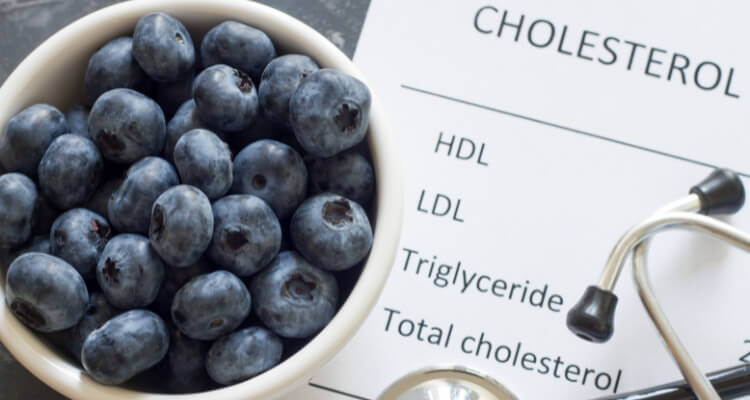Health is often referred to as our most asset, and rightfully so. It forms the foundation upon which we build our lives, enabling us to embrace each day with energy, enthusiasm, and vitality. Yet, during our hectic schedules and overwhelming responsibilities, we often neglect our own well-being, inadvertently compromising our potential for a truly extraordinary life.
But fear is not! This blog aims to empower you with the knowledge, tools, and inspiration necessary to reclaim control of your health and embark on a transformative journey towards a better life. Whether you seek physical vitality, mental clarity, emotional resilience, or a harmonious balance of all three, this digital space is your sanctuary for holistic wellness.
Through a fusion of evidence-based research, expert insights, and practical advice, we will explore the myriad facets of well-being. From exploring the power of nutrition and exercise to nurturing our mental and emotional landscapes, we will leave no stone unturned in our pursuit of optimal health.
Heart-Healthy Diet

A heart-healthy diet is centered around consuming nutrient-rich foods that support heart function and reduce the risk of heart disease. It involves emphasizing fruits, vegetables, whole grains, lean proteins, and healthy fats while limiting saturated and trans fats, sodium, and added sugars.
Fruits and vegetables provide essential vitamins, minerals, and antioxidants that reduce inflammation, lower blood pressure, and improve overall heart health. Whole grains, such as oats, brown rice, and quinoa, are high in fiber, which helps regulate cholesterol levels and maintain healthy blood vessels.
Lean proteins, including skinless poultry, fish, legumes, tofu, and low-fat dairy products, are preferable choices as they are lower in saturated fats and cholesterol. Plant-based proteins are also beneficial for heart health.
Incorporating healthy fats from sources like avocados, nuts, seeds, and olive oil can help lower bad cholesterol levels and reduce the risk of heart disease. However, moderation is key due to their high caloric content.
To promote heart health, it is important to limit the intake of foods high in saturated and trans fats, such as fatty meats, full-fat dairy products, fried foods, and commercially baked goods. These fats can raise cholesterol levels and increase the risk of heart disease.
Controlling portion sizes and listening to hunger and fullness cues are crucial for maintaining a healthy weight and preventing overeating. Staying hydrated by drinking water throughout the day is also essential for optimal heart function.
Adopting a heart-healthy diet requires consistency and making sustainable changes to eating habits. Consulting a healthcare professional or registered dietitian can provide personalized guidance tailored to individual dietary needs.
Best Foods for Heart Health
Choosing the right foods is crucial for maintaining a healthy heart. Here are some of the best foods for heart health:
- Fatty Fish: Fatty fish like salmon, mackerel, and sardines are rich in omega-3 fatty acids, which can help reduce inflammation, lower triglyceride levels, and improve heart health.
- Berries: Berries such as strawberries, blueberries, and raspberries are packed with antioxidants and fiber. They have been linked to a lower risk of heart disease due to their ability to reduce oxidative stress and inflammation.
- Nuts: Almonds, walnuts, and other nuts are excellent sources of heart-healthy fats, fiber, and antioxidants. Eating a handful of nuts regularly can help lower cholesterol levels and improve heart health.
- Dark Chocolate: Dark chocolate with a high cocoa content (70% or more) contains flavonoids that have been shown to improve heart health by reducing blood pressure and improving blood flow.
- Whole Grains: Whole grains like oats, quinoa, and brown rice are rich in fiber, vitamins, and minerals. They can help lower cholesterol levels, regulate blood sugar, and reduce the risk of heart disease.
- Leafy Green Vegetables: Spinach, kale, and other leafy greens are low in calories and high in vitamins, minerals, and antioxidants. They are beneficial for heart health due to their ability to lower blood pressure and improve arterial function.
- Avocados: Avocados are a great source of monounsaturated fats, which can help lower bad cholesterol levels. They are also rich in fiber, potassium, and antioxidants that support heart health.
- Tomatoes: Tomatoes are packed with lycopene, an antioxidant that gives them their vibrant red color. Lycopene has been associated with a reduced risk of heart disease and stroke.
- Legumes: Beans, lentils, and chickpeas are excellent sources of protein, fiber, and minerals. They can help lower cholesterol levels, regulate blood sugar, and promote a healthy heart.
- Olive Oil: Olive oil is a healthy fat option that is rich in monounsaturated fats and antioxidants. It has been linked to a reduced risk of heart disease and inflammation.
Incorporating these foods into a well-balanced diet can support heart health and reduce the risk of cardiovascular disease. However, it is important to maintain a varied and balanced diet overall and consult a healthcare professional or dietitian for personalized advice.
Exercise for heart health

Exercise plays a vital role in maintaining a healthy heart. Regular physical activity strengthens the heart muscle, improves circulation, and helps manage weight, blood pressure, and cholesterol levels. Here’s a brief overview of exercise for heart health:
- Aerobic Exercise: Engaging in aerobic activities such as brisk walking, running, cycling, swimming, or dancing helps increase heart rate and oxygen intake. Aim for at least 150 minutes of moderate-intensity aerobic exercise or 75 minutes of vigorous exercise per week.
- Strength Training: Incorporating strength training exercises using weights or resistance bands helps build muscle mass and improve overall cardiovascular fitness. Include strength training activities at least two days a week, targeting major muscle groups.
- Interval Training: High-intensity interval training (HIIT) involves alternating periods of intense exercise with short recovery periods. It is an effective way to improve cardiovascular fitness, burn calories, and enhance heart health in less time.
- Regularity and Consistency: Consistency is key when it comes to exercise. Aim for regular workouts, preferably most days of the week, to maintain and improve heart health. Find activities that you enjoy and make them a part of your routine.
- Safety and Personalization: Consult with a healthcare professional before starting any exercise program, especially if you have any underlying health conditions. They can provide personalized recommendations and guidance based on your individual needs and capabilities.
Remember, always listen to your body, and gradually increase the intensity and duration of exercise over time. Be mindful of any warning signs such as chest pain, dizziness, or shortness of breath, and seek medical attention if necessary. Regular exercise, combined with a healthy diet and lifestyle, can significantly contribute to a strong and healthy heart.
Ways to reduce heart disease risk
To reduce the risk of heart disease, adopt a heart-healthy diet, engage in regular exercise, maintain a healthy weight, avoid smoking and excessive alcohol consumption, manage stress, schedule regular check-ups, and prioritize sufficient sleep. These lifestyle changes can significantly lower the risk of heart disease and promote overall cardiovascular health. Consulting with healthcare professionals is important for personalized guidance.
Symptoms of heart disease
Symptoms of heart disease can vary, but common signs include chest pain or discomfort, shortness of breath, fatigue, palpitations, dizziness, and swelling in the legs, ankles, or feet. Chest pain may feel like pressure, tightness, or a squeezing sensation. It can also radiate to the arms, neck, jaw, or back. Shortness of breath may occur during physical activity or during rest. Fatigue and weakness may be persistent and interfere with daily activities. Palpitations refer to irregular heartbeats or a rapid heart rate. Dizziness and fainting spells may indicate insufficient blood flow to the brain. Swelling in the lower extremities can occur due to fluid retention. However, it’s important to note that some people with heart disease may experience no symptoms, which makes regular check-ups and monitoring of risk factors crucial. If any of these symptoms are experienced, seeking medical attention promptly is important to evaluate and address potential heart-related concerns.
Healthy heart rate
A healthy heart rate typically falls within a range of 60 to 100 beats per minute for adults at rest. Regular physical activity and overall cardiovascular health can lead to a lower resting heart rate. However, individual factors such as age, fitness level, and underlying health conditions can influence heart rate. Monitoring heart rate during exercise is important to ensure an appropriate level of intensity. High or low heart rates outside of normal ranges may indicate underlying issues and should be evaluated by a healthcare professional. Maintaining a healthy heart rate is important for overall cardiovascular wellness and can be achieved through regular exercise, a balanced diet, stress management, and avoiding smoking.
How to lower cholesterol

Lowering cholesterol is crucial for heart health. To do so, adopt a healthy diet that includes fruits, vegetables, whole grains, and lean proteins while limiting saturated and trans fats. Increase fiber intake and reduce consumption of high-cholesterol foods. Engage in regular exercise to raise HDL cholesterol levels and maintain a healthy weight. Quit smoking, as it can lower HDL cholesterol and harm blood vessels. If necessary, medications may be prescribed by a healthcare professional. Regular cholesterol checks and consulting with a healthcare provider are important for personalized guidance and monitoring progress. Taking these steps can help lower cholesterol levels and promote a healthier heart.
Remember to have your cholesterol levels regularly checked by a healthcare professional and discuss personalized strategies and treatment options. By implementing these lifestyle changes and, if necessary, medications, you can significantly lower cholesterol levels and reduce the risk of heart disease.
How to lower blood pressure
Lowering blood pressure is crucial for maintaining cardiovascular health. Here are some effective strategies to lower blood pressure:
- Adopt a Healthy Diet: Follow a diet rich in fruits, vegetables, whole grains, lean proteins, and low-fat dairy products. Reduce sodium intake and limit processed and high-sodium foods.
- Maintain a Healthy Weight: Losing excess weight can help lower blood pressure. Focus on a balanced diet and engage in regular physical activity to achieve and maintain a healthy weight.
- Exercise Regularly: Engage in aerobic exercises such as brisk walking, jogging, cycling, or swimming for at least 150 minutes per week. Physical activity helps lower blood pressure and improves overall cardiovascular fitness.
- Limit Alcohol Consumption: Moderate alcohol consumption is recommended, with a limit of up to one drink per day for women and up to two drinks per day for men. Excessive alcohol intake can raise blood pressure.
- Reduce Sodium Intake: Limiting sodium consumption can help lower blood pressure. Read food labels, avoid adding salt to meals, and choose low-sodium alternatives.
- Manage Stress: Find healthy ways to manage stress, such as exercise, relaxation techniques, or engaging in hobbies. Chronic stress can contribute to high blood pressure.
- Quit Smoking: Smoking raises blood pressure and damages blood vessels. Quitting smoking has immediate and long-term benefits for blood pressure and overall cardiovascular health.
- Medication: In some cases, lifestyle changes may not be enough to lower blood pressure. Your healthcare provider may prescribe medications to help manage and control blood pressure effectively.
Regular monitoring of blood pressure, adherence to prescribed medications, and consultation with a healthcare professional are important for personalized guidance and monitoring progress. By implementing these lifestyle changes and following medical recommendations, it is possible to lower blood pressure and reduce the risk of cardiovascular complications.
Heart-healthy recipes
Heart-healthy recipes are designed to promote cardiovascular health by incorporating nutrient-rich ingredients and reducing unhealthy components. These recipes focus on incorporating fruits, vegetables, whole grains, lean proteins, and healthy fats. They minimize the use of added sugars, saturated fats, and sodium. Heart-healthy recipes can include dishes such as grilled salmon with a side of steamed vegetables, a quinoa and vegetable stir-fry, or a mixed berry and spinach salad. These recipes prioritize fresh and wholesome ingredients that provide essential nutrients while supporting heart health. By following heart-healthy recipes, individuals can enjoy flavorful meals that contribute to a well-balanced diet and promote cardiovascular wellness.
Impact of Smoking on heart health
Smoking has a severe impact on heart health. It damages blood vessels, raises blood pressure, and increases the risk of heart disease. Smoking causes the buildup of plaque in the arteries, leading to atherosclerosis and increasing the likelihood of heart attacks and strokes. The chemicals in tobacco smoke can also cause inflammation, damage the lining of blood vessels, and promote the formation of blood clots. Secondhand smoke exposure is also harmful to cardiovascular health. Quitting smoking is crucial for improving heart health and reducing the risk of cardiovascular diseases. The benefits of quitting smoking are significant and immediate, leading to a reduced risk of heart disease, improved blood circulation, and lower blood pressure. Seeking support from healthcare professionals, utilizing cessation programs, and adopting healthy coping mechanisms are effective strategies in quitting smoking and protecting heart health.
Alcohol and heart health
When it comes to alcohol and heart health, moderation is key. Moderate alcohol consumption may have some potential benefits for the heart, such as increasing levels of HDL (good) cholesterol and reducing the risk of heart disease. However, excessive alcohol intake can have detrimental effects on cardiovascular health. It can raise blood pressure, contribute to heart muscle damage, and increase the risk of conditions like arrhythmias and cardiomyopathy. To protect heart health, it is important to consume alcohol in moderation, which means up to one drink per day for women and up to two drinks per day for men. It’s important to note that these guidelines may vary depending on individual health conditions and risks, and it’s always best to consult with a healthcare professional for personalized advice. For individuals who do not drink, it is not recommended to start solely for potential heart benefits, as the risks associated with alcohol can outweigh the potential benefits. It’s important to prioritize overall heart-healthy habits, such as a balanced diet, regular exercise, maintaining a healthy weight, and avoiding smoking, in addition to making informed choices about alcohol consumption.
Heart health supplements

Heart health supplements are dietary supplements that claim to support cardiovascular health. While some supplements may have ingredients like omega-3 fatty acids, coenzyme Q10, or plant sterols that could potentially benefit heart health, it’s important to note that scientific evidence supporting their effectiveness is limited. In general, a balanced diet rich in fruits, vegetables, whole grains, lean proteins, and healthy fats are the foundation for heart health. It’s recommended to obtain nutrients from natural food sources rather than relying solely on supplements. Before starting any supplements, it’s crucial to consult with a healthcare professional who can provide personalized advice based on individual health needs and potential interactions with medications. They can also help assess the need for supplements and guide people on choosing reliable brands. It’s important to remember that supplements are not a substitute for a healthy lifestyle, and maintaining heart health involves a combination of regular exercise, a nutritious diet, avoiding smoking, managing stress, and getting regular check-ups.
Heart health tests
Heart health tests play a crucial role in assessing cardiovascular health and identifying potential risk factors. These tests include cholesterol screenings, blood pressure measurements, electrocardiograms (ECGs), stress tests, and echocardiograms. Cholesterol screenings help evaluate lipid levels and identify high cholesterol, which is a major risk factor for heart disease. Blood pressure measurements assess the force of blood against artery walls and help identify hypertension. ECGs record the electrical activity of the heart to detect irregularities or signs of heart disease. Stress tests evaluate the heart’s performance during physical exertion to assess its response to stress. Echocardiograms use ultrasound waves to create images of the heart and provide information about its structure and function. These tests help healthcare professionals evaluate heart health, detect abnormalities, and develop appropriate treatment plans. Regular heart health tests are important, especially for individuals with known risk factors or a family history of heart disease. It’s recommended to consult with a healthcare professional who can determine the appropriate tests based on individual circumstances and provide guidance on how often these tests should be conducted. Early detection through heart health tests can lead to timely interventions and improved cardiovascular outcomes.
Stress and heart disease
Stress can have a significant impact on heart health and contribute to the development of heart disease. When under stress, the body releases stress hormones that can raise blood pressure, increase heart rate, and cause inflammation in blood vessels. Chronic stress can lead to unhealthy coping mechanisms such as overeating, smoking, or excessive alcohol consumption, which further increase the risk of heart disease. Additionally, stress can disrupt sleep patterns, hinder adherence to a healthy lifestyle, and contribute to the development of other risk factors like high cholesterol and obesity. It is important to manage stress through healthy strategies such as regular exercise, relaxation techniques, engaging in hobbies, and seeking support from loved ones. By effectively managing stress, individuals can reduce their risk of heart disease and improve overall cardiovascular health.
Sleep and heart health

Adequate sleep is essential for maintaining optimal heart health. Poor sleep patterns and sleep disorders have been linked to an increased risk of cardiovascular problems. Lack of sleep or insufficient sleep duration can contribute to high blood pressure, obesity, diabetes, and an imbalance in heart-related hormones. It may also affect cholesterol levels, promote inflammation, and disrupt the body’s natural circadian rhythm. On the other hand, consistently getting 7-9 hours of quality sleep each night has been associated with a lower risk of heart disease. Establishing a regular sleep routine, creating a comfortable sleep environment, and adopting healthy sleep habits can contribute to better heart health. It is crucial to prioritize sufficient sleep as part of a comprehensive approach to maintaining a healthy heart and overall well-being.
Heart health tips
Balanced Diet: Follow a heart-healthy diet rich in fruits, vegetables, whole grains, lean proteins, and healthy fats. Limit processed foods, saturated fats, sodium, and added sugars.
Regular Exercise: Engage in physical activity regularly. Aim for at least 150 minutes of moderate aerobic exercise or 75 minutes of vigorous exercise per week, along with strength training exercises.
Avoid Smoking: Quit smoking or avoid tobacco products altogether. Smoking damages blood vessels and increases the risk of heart disease.
Manage Stress: Find healthy ways to manage stress, such as exercise, relaxation techniques, or hobbies. Chronic stress can contribute to heart disease.
Maintain a Healthy Weight: Strive to achieve and maintain a healthy weight through a combination of a balanced diet and regular physical activity. Excess weight can increase the risk of heart disease.
Monitor Blood Pressure and Cholesterol: Get regular check-ups to monitor blood pressure and cholesterol levels. High blood pressure and elevated cholesterol levels are risk factors for heart disease.
Limit Alcohol Intake: If you drink alcohol, do so in moderation. Excessive alcohol consumption can raise blood pressure and contribute to heart disease. Get Enough Sleep: Aim for 7-9 hours of quality sleep each night. Poor sleep can increase the risk of high blood pressure, obesity, diabetes, and heart disease. By following these heart health tips, individuals can promote a healthy heart and reduce the risk of cardiovascular diseases. It’s important to consult with healthcare professionals for personalized advice and guidance based on individual health needs.
Heart health exercises
Heart health exercises are physical activities that help strengthen the heart muscle, improve circulation, and promote cardiovascular fitness. Aerobic exercises, such as brisk walking, jogging, swimming, cycling, and dancing, are particularly beneficial for the heart. These exercises increase heart rate and breathing, improving the heart’s efficiency and endurance. Engaging in regular aerobic exercise for at least 150 minutes per week can lower the risk of heart disease. Additionally, strength training exercises, such as lifting weights or using resistance bands, help build muscle and support overall cardiovascular health. It’s important to choose exercises that suit individual fitness levels and preferences, gradually increasing intensity over time. Always consult with a healthcare professional before starting a new exercise program, especially if you have pre-existing health conditions. Making heart health exercises a regular part of your routine can contribute to a stronger, healthier heart and reduce the risk of cardiovascular diseases.
How to prevent heart attack

Preventing a heart attack involves adopting a healthy lifestyle, controlling blood pressure and cholesterol, managing diabetes, limiting alcohol intake, managing stress, scheduling regular check-ups, knowing your family history, following medication regimens, and being prepared for emergencies. By incorporating these strategies and seeking medical care, you can significantly reduce the risk of a heart attack. Prioritize your heart health and consult with healthcare professionals for personalized guidance.
Signs of an unhealthy heart
Recognizing the signs of an unhealthy heart is crucial for early detection and intervention. Common signs include chest pain or discomfort, shortness of breath, fatigue, irregular heartbeat, dizziness, or lightheadedness, swelling in the legs, ankles, and feet, and frequent episodes of fainting or near-fainting. These symptoms may vary from person to person and can indicate underlying heart conditions such as coronary artery disease, heart failure, or arrhythmias. It’s essential to seek medical attention if experiencing any of these signs to receive a proper diagnosis and appropriate treatment. Ignoring these symptoms can lead to serious complications, so it’s important to listen to your body and prioritize heart health.
Weight loss for heart health
Weight loss plays a crucial role in improving heart health. Excess weight, especially around the waist, increases the risk of heart disease and other cardiovascular conditions. By adopting a healthy diet, engaging in regular physical activity, and making sustainable lifestyle changes, individuals can achieve weight loss and reduce the strain on their hearts. Losing even a modest amount of weight can lead to significant improvements in blood pressure, cholesterol levels, and overall cardiovascular function. It’s important to focus on long-term, sustainable weight loss rather than quick fixes. Consulting with healthcare professionals and registered dietitians can provide personalized guidance and support throughout the weight loss journey. Prioritizing weight loss for heart health can lead to a stronger, healthier heart and a reduced risk of heart disease.
Conclusion:
Even healthy foods can contribute to weight gain if eaten in excessive amounts. Understanding portion sizes and keeping them in check is crucial. Using smaller plates, bowls, and glasses can be an effective way to keep portions under control.
Remember, a heart-healthy diet isn’t about deprivation—it’s about balance, variety, and making sustainable choices that work for your lifestyle. Pair your healthy eating habits with regular physical activity, adequate sleep, and stress management techniques to provide your heart with the most robust defense system against disease.
However, everyone is unique, and what works for one person may not work for another. Always consult with a healthcare professional or a registered dietitian to get personalized advice about diet and lifestyle changes.






